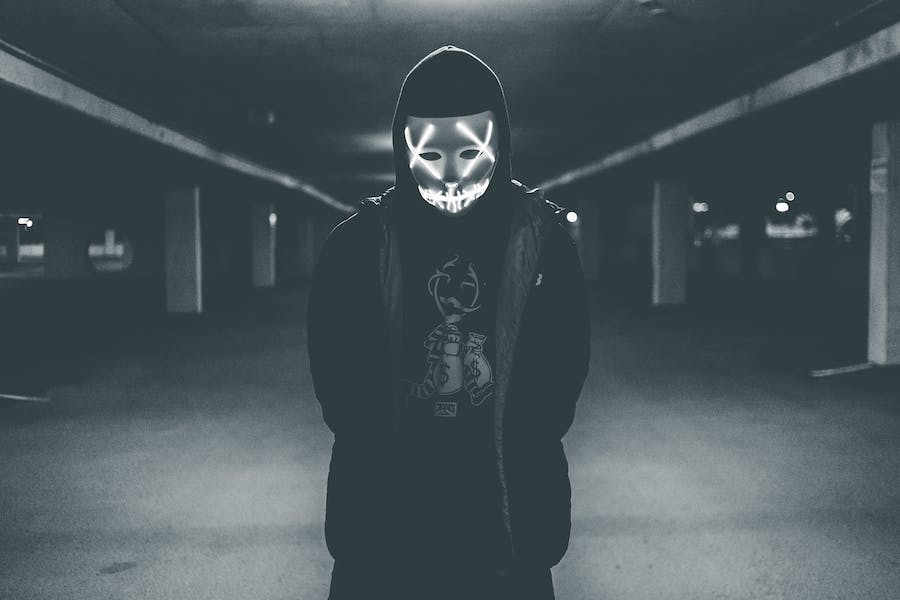In a world filled with self-help trends and the promise of unlocking the key to personal success and happiness, “the secret” has captured the imaginations of countless individuals. This enigmatic concept, often associated with the law of attraction, offers a tantalizing prospect: the power to manifest one’s desires through positive thinking and intention. However, beneath the alluring façade of empowerment lies a lurking danger. In this article, we delve into the hidden risks and potential pitfalls of embracing “the secret,” shedding light on why this seemingly innocuous belief system can be perilous.
Why The Secret Is Dangerous?
- False Hope And Unrealistic Expectations: “The Secret” often oversimplifies the complexities of life and personal success, leading people to believe that simply thinking positively can bring about their desired outcomes. This can create unrealistic expectations, leading to disappointment and disillusionment when things don’t go as planned.
- Victim-Blaming And Oversimplification: Believers in “The Secret” may inadvertently blame themselves or others for negative experiences, as the philosophy suggests that negative thoughts or energy attract adversity. This oversimplification can lead to feelings of guilt, shame, or self-blame.
- Neglecting Hard Work And Perseverance: “The Secret” can downplay the importance of hard work, effort, and dedication in achieving goals. It may encourage people to rely solely on positive thinking without taking the necessary action steps to accomplish their aspirations.
- Financial Exploitation: The self-help industry, which often promotes “The Secret,” can be financially exploitative. Individuals may invest significant amounts of money in books, seminars, and programs based on these principles, only to find limited tangible benefits.
- Mental Health Implications: Belief in “The Secret” can lead to increased anxiety and stress, particularly when desired outcomes are not realized. The pressure to maintain positive thinking at all times can negatively impact mental health and well-being.
- Cult-Like Behavior: In some cases, followers of “The Secret” can exhibit cult-like behavior, isolating themselves from non-believers, following charismatic leaders, and resisting criticism. This can lead to social and psychological isolation.
- Lack Of Critical Thinking: Embracing “The Secret” without critical examination can hinder one’s ability to think critically and make informed decisions. It can discourage questioning or seeking alternative perspectives.
- Diverting Responsibility: Believers may attribute external circumstances solely to their thoughts, which can prevent them from acknowledging external factors or systemic issues that impact their lives.
Understanding “The Secret”
“The Secret” is a concept that gained significant popularity through the 2006 self-help book and subsequent documentary film of the same name, both created by Rhonda Byrne. At its core, “The Secret” revolves around the principle of the law of attraction, which posits that individuals can attract positive or negative experiences into their lives through their thoughts, beliefs, and intentions. It suggests that by maintaining a consistently positive mindset and focusing on desired outcomes, one can manifest those desires into reality. This concept has resonated with millions of people worldwide, promising empowerment and control over their destinies.
Central to “The Secret” is the idea that the universe responds to the energy and vibrations emitted by an individual’s thoughts and emotions. Advocates argue that if you consistently think positively and visualize your goals, the universe will conspire to bring those desires to fruition. This belief system encourages individuals to affirm their goals daily, use vision boards to visualize their aspirations and eliminate negative thoughts and doubt.
“The Secret” has been praised for its motivational aspects and its ability to inspire individuals to take action and believe in their potential. However, it has also faced criticism for its oversimplified and pseudoscientific nature. Critics argue that while positive thinking can indeed improve one’s outlook and motivation, it cannot solely determine life outcomes, and “The Secret” neglects the complexities of life, including external factors and systemic influences. Understanding “The Secret” requires recognizing both its appeal and its potential limitations.
Psychological And Emotional Impact
The psychological and emotional impact of embracing “The Secret” can be significant and multifaceted, with both positive and negative consequences. Understanding these impacts is essential for anyone considering adopting this belief system:
1. Positive Emotional Impact:
- Increased Optimism: Believers in “The Secret” often report feeling more optimistic and hopeful about their future. The focus on positive thinking can boost their overall mood and outlook on life.
- Enhanced Motivation: The belief that one can manifest their desires through thoughts and intentions can provide a strong sense of motivation and purpose, encouraging individuals to take action towards their goals.
2. Negative Psychological And Emotional Impact:
- Anxiety And Stress: Constant pressure to maintain a positive mindset and the fear of attracting negative outcomes can lead to increased anxiety and stress. Believers may worry that any negative thought or emotion will derail their desires.
- Sense Of Failure: When individuals do not achieve their goals or experience setbacks, they may perceive it as a personal failure, leading to feelings of inadequacy or disappointment.
- Self-Blame: “The Secret” can inadvertently foster self-blame, as it suggests that individuals are solely responsible for attracting both positive and negative experiences. This can lead to guilt and self-criticism.
- Disillusionment: As individuals invest time and energy into practicing “The Secret” without seeing the expected results, they may become disillusioned and question the validity of the belief system.
How Some Followers Of “The Secret” Exhibit Cult-Like Behavior?
Some followers of “The Secret” and similar self-help belief systems can exhibit cult-like behavior in various ways. While not all individuals who embrace these teachings engage in such behavior, it’s important to be aware of the potential for extreme devotion and group dynamics that can mimic cult-like tendencies. Here are some common characteristics of how followers of “The Secret” may exhibit such behavior:
Isolation From Non-Believers:
Followers may distance themselves from friends and family who do not share their beliefs, as they perceive these individuals as negative influences or skeptics. This isolation can lead to a narrowing of their social circle and a reinforced echo chamber of like-minded believers.
Devotion To Charismatic Leaders Or Gurus:
Some followers may develop a strong attachment to charismatic figures associated with “The Secret.” They may treat these leaders or authors as infallible sources of wisdom and guidance, often elevating them to a quasi-spiritual or guru-like status.
Resistance To Criticism Or Dissent:
Cult-like behavior often involves resistance to criticism or dissenting views. Followers of “The Secret” may become defensive when their beliefs are questioned or challenged, viewing any criticism as an attack on their identity or faith.
Groupthink And Conformity:
Believers may conform to a groupthink mentality, adopting the beliefs and behaviors of the larger community without question. This conformity can stifle individual critical thinking and discourage independent analysis.
Proselytizing And Recruitment:
Some followers actively engage in recruiting new members and proselytizing the teachings of “The Secret” to others, often with great zeal. This recruitment can resemble the evangelism commonly associated with cults.
Conclusion
In conclusion, while “The Secret” and similar self-help belief systems offer the allure of personal empowerment and positive transformation, they also come with inherent dangers. The potential for false hope, unrealistic expectations, and cult-like behavior poses significant risks to individuals’ mental and emotional well-being. It is essential to approach these teachings with critical thinking, maintain a balance between positive thinking and practical action, and be vigilant against the potential for manipulation and isolation. By doing so, individuals can navigate the world of self-help with greater discernment and resilience, ultimately seeking personal growth and fulfillment responsibly.
FAQ’s
What Is “The Secret”?
“The Secret” is a self-help concept popularized by Rhonda Byrne, emphasizing the law of attraction. It suggests that positive thinking and intentions can manifest desired outcomes in life.
Is “The Secret” Scientifically Proven?
“The Secret” lacks scientific evidence to support its claims. While positive thinking can have benefits, it oversimplifies the complexities of life and human behavior.
What Are The Potential Dangers Of Believing In “The Secret”?
Dangers include unrealistic expectations, anxiety, self-blame, financial exploitation, and the risk of cult-like behavior among followers.
Can “The Secret” Be Beneficial In Any Way?
Some people find motivation and optimism in its principles. However, a balanced approach, combining positive thinking with realistic action, is often more effective for personal growth.
How Can One Avoid Falling Into The Dangers Of “The Secret”?
Avoid extreme devotion, maintain critical thinking, seek diverse perspectives, set realistic goals, and prioritize mental well-being to mitigate the potential dangers associated with “The Secret.”








